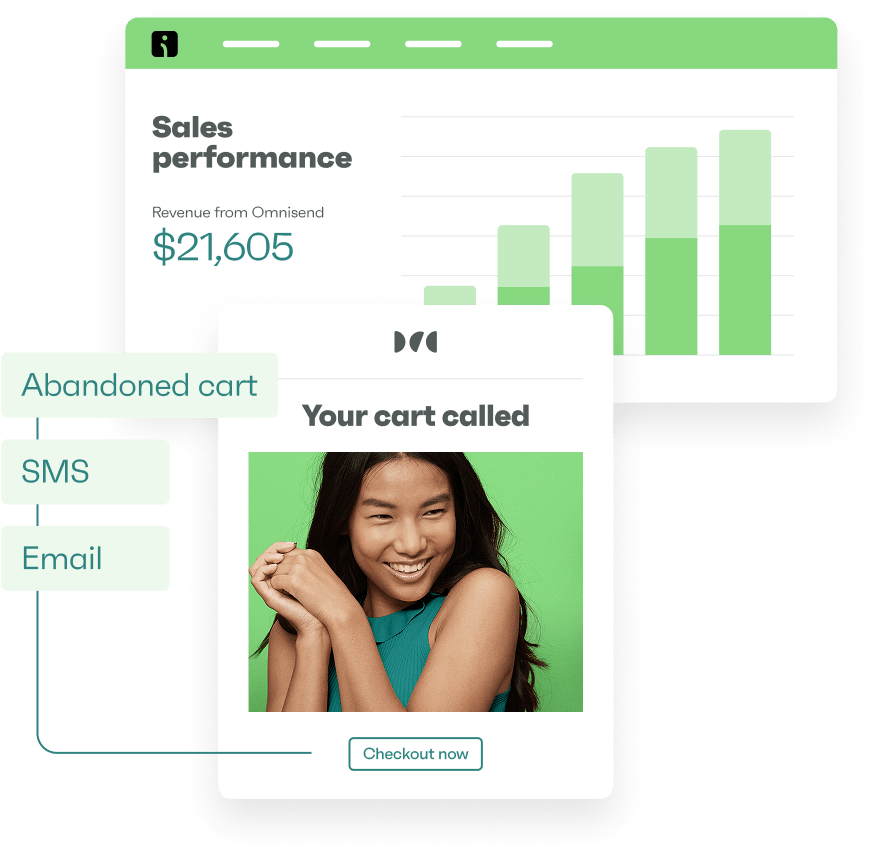Drive sales on autopilot with ecommerce-focused features
See FeaturesRead summarized version with
Healthcare digital marketing is constantly evolving, requiring innovative strategies to remain competitive and effectively engage patients. With over 50% of US adults looking for health information online, healthcare providers play a crucial role in making sure potential patients can find the information they need.
In this article, we’ll explore what healthcare digital marketing is and why it’s important to the industry. We’ll cover the top six channels that should be focused on, including email marketing, SEO, SMS marketing, social media, and influencers.
We’ll also look at how these channels can complement each other with the assistance of tools like Omnisend and how platforms like WooCommerce can be set up to enable easy online sales of healthcare products and services.
Finally, we’ll help you consider what’s possible by providing some success stories of healthcare providers who have effectively used digital marketing.
What is healthcare digital marketing?
Healthcare digital marketing refers to strategies and practices that are specifically designed to attract, acquire, and retain patients online. Healthcare digital marketing leverages multiple channels to promote healthcare services and offerings, including search engines, social media, email, and SMS.
Through digital marketing, healthcare providers aim to enhance patient engagement, improve the visibility of their businesses, and increase patient loyalty.
Why is healthcare digital marketing important?
Online marketing plays an instrumental role for healthcare providers who are looking to reach and engage patients in today’s digital age. Through online marketing strategies, providers can not only acquire new patients, but also maintain and strengthen relationships by keeping them informed about services and encouraging regular visits.
Having a targeted and personalized communication approach increases trust and authority as doctors and other providers can answer questions quickly and deliver vital information faster.
The reality is that current and future patients are getting their healthcare information online, so it’s critical for practitioners to have an online presence there as well.
This approach often involves an omnichannel strategy, where you use various tools to ensure your messaging and engagement is consistent across multiple channels and that you’re monitoring across campaigns, engaging patients through multiple touchpoints.
Top 6 digital marketing strategies for the healthcare industry
This section will delve into the top six digital marketing strategies that can significantly enhance a healthcare organization’s online presence, improve patient engagement, and ultimately drive growth.
Email marketing
Email marketing is an essential tool for healthcare organizations. It allows for them to:
- Establish trust with potential new patients through education
- Stay in front of current patients with new offerings
- Remind patients about check-ups, shots, blood work, and other annual checklist items
The key to an effective email marketing strategy in the healthcare field is segmenting your patients so that you can send more personalized messages that they’ll be more inclined to open and engage with. For example, you may want to segment your pediatric customers and your elderly patients into two distinct groups since the information you will want to send them is different.
You can further improve your messaging through triggers. Triggers are actions, activities, or timing-based data points that signal that a message should be sent. For example, if you have a patient on a healthcare plan that involves bi-annual visits, you can create a trigger to send reminder emails every four months to ensure that they schedule their visit ahead of time.
Omnisend is built to help with this kind of segmentation and automation. It offers tools that can help you maximize your efficiency and provide an amazing user experience for your patients. It also has a wide selection of ready-to-use email templates for health-related companies, which you can use immediately to ensure your messaging looks professional and your email marketing achieves your goals.
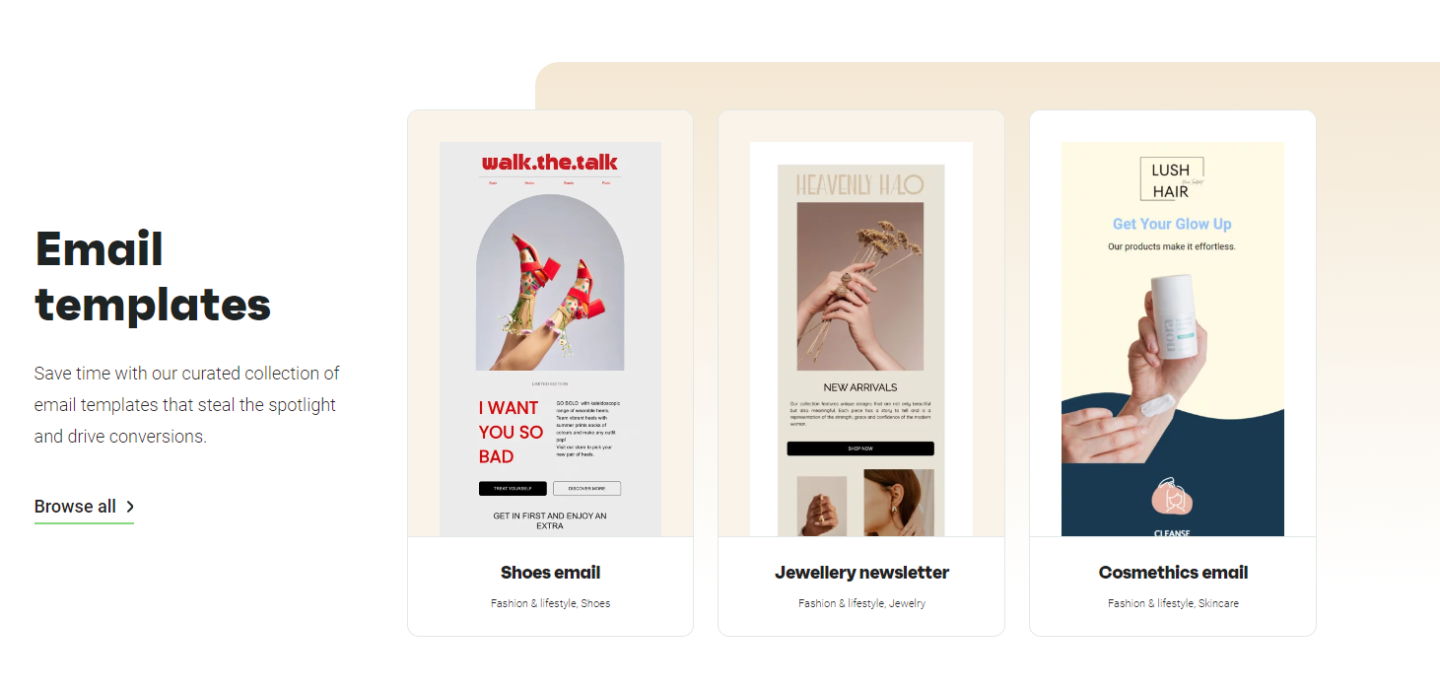
If you use a WooCommerce store to sell your healthcare products and services, you’ll be pleased to know that Omnisend seamlessly integrates, allowing you to build segmentation and triggers around your online customers’ actions.
Quick sign up | No credit card required
SMS marketing
Text messages are changing how doctors communicate with their patients. SMS is an ideal channel for instant communication, especially as so many people keep their phones with them 24/7.
This is a huge plus for healthcare providers asSMS provides a valuable channel for delivering information and updates. It doesn’t replace emails but rather complements them. SMS and email often work together to ensure customers receive important messages, offers, and updates.
Doctors can use SMS to help patients take their medicine on time and remind them about pending specialist visits and bloodwork. This makes SMS a great patient communication tool as well as a powerful marketing channel.
Omnisend’s text message tools integrate seamlessly with email campaigns. You can manage both channels from one platform and build audience segments and automated triggers to ensure your customers receive the right message at the right time. Don’t be afraid to send SMSs to your customers — they’re a great way to keep them updated and engaged.
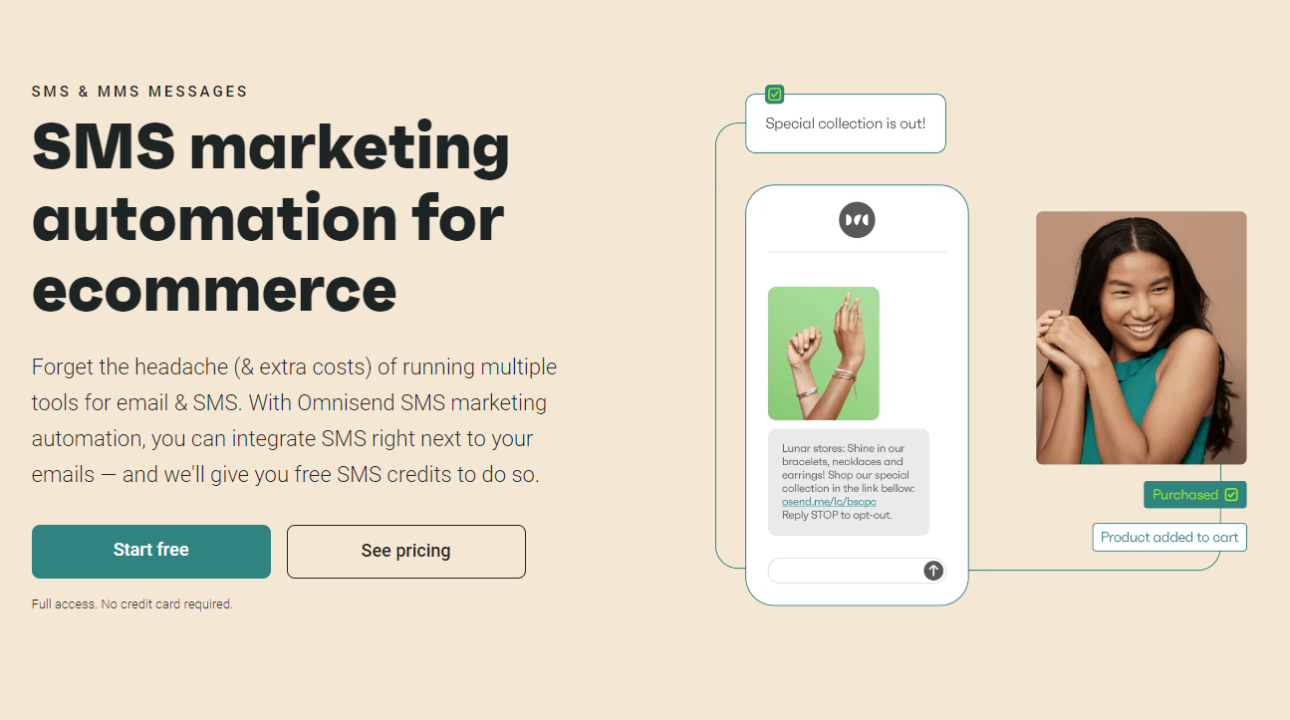
Quick sign up | No credit card required
SEO (Search engine optimization)
Your current and potential patients are researching their symptoms, health care plans, medication options, and products online. They’re using search engines like Google to find information and specialists they can visit to discuss their concerns.
Optimizing for search engines allows your business to be visible when they’re conducting this research. For healthcare businesses, this means focusing on a few components of SEO:
Website optimization
Search engines, like Google, need to be able to crawl your website and understand what it’s about. Ensure your website loads quickly, has clear navigation, and contains accurate HTML. Search engines also rely on concepts like schema markup to help them understand who you are and what you specialize in.
In 2025, optimizing your website for mobile phones is a must. Search engines provide different results for mobile and desktop users based on the mobile-friendliness of a website. Keep these factors in mind when optimizing your website.
Content marketing
Your patients are searching for answers to their health-related questions, and you have the answers. Crafting high-quality content that puts those answers in front of them will help your site rank for specific terms related to your healthcare business and provide a positive patient experience. It also helps reinforce your position as an expert in your field.
Local SEO
If your healthcare business is locally focused, like a doctor’s office, then it’s vital that you optimize for local search. You should optimize your Google My Business listing and actively request patient reviews. This healthcare digital marketing strategy will make it easier for local searchers to find your practice.
Social media
Social media plays a huge role in a patient’s healthcare life. They use platforms to get referrals from friends, find medication information, and get treatment plan feedback. Being involved in these conversations is important — from a healthcare marketing perspective, this is an active potential patient group looking for your services.
Here’s an example of a pediatric dentistry office that’s capitalizing on the power of social media:
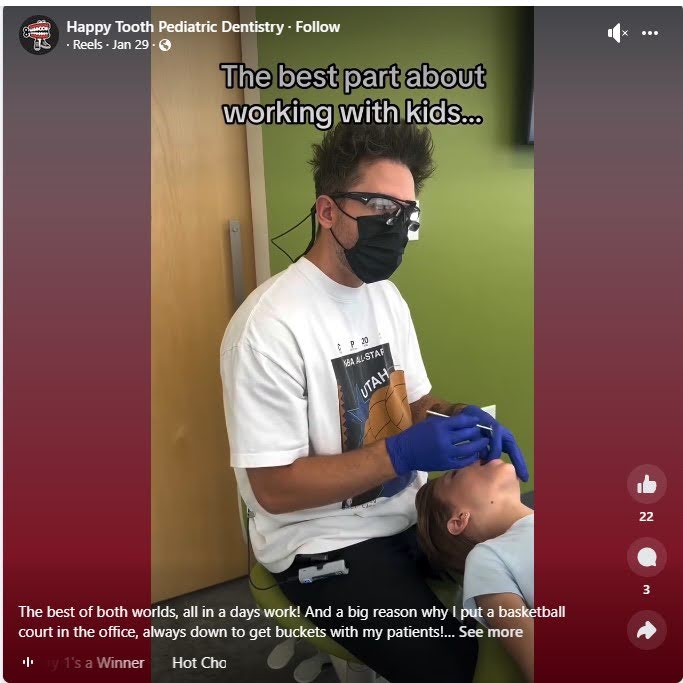
Healthcare social media marketing also offers opportunities for your business. The nature of these platforms allows you to segment your advertising to your specialty or location. Social media allows you to get your ads in front of the right potential group and interact with them on the platform, increasing the likelihood of a future visit or sale.
Pay-per-click (PPC) advertising
Pay-per-click advertising complements your SEO and healthcare social media marketing strategy. It ensures that your services appear prominently for key search terms while your website’s organic rankings improve. You can also leverage retargeting to stay in front of potential patients who have interacted with your content. This allows you to slowly build trust and authority as they explore their healthcare options..
Influencer marketing
The rise of influencer marketing in the wellness space can provide a valuable channel for healthcare providers. This is specifically true if you have a national brand or you’re a specialist, such as a physical therapist or nutritionist who sells digital products and services.
There are opportunities to collaborate with influencers or simply sponsor their content. This can be beneficial because their audience trusts their recommendations. Influencer marketing complements your social media marketing and can lead to increased authority on those platforms.
Setting up your healthcare services online
If you offer products or services that can be sold online, integrating ecommerce functionality into your website is a no-brainer. This website can be an online store of your medical services, including the functionality to book and amend appointments. For a more tailored approach, healthcare software development can help enhance the platform, enabling features like patient management systems or online consultations to improve the user experience.
Platforms like WooCommerce make it easy to set up and sell. WooCommerce is a plugin for WordPress and has more than five million installations. It’s user-friendly, has secure payment systems, and supports a ton of integrations that will streamline your online medical marketing campaigns.
Some of the benefits that WooCommerce offers your healthcare website include:
- Sell medical supplies, services, or wellness products directly to consumers
- Simplify online appointment scheduling and booking systems
- User-friendly platform that is easy to navigate
- Secure payment system ensuring safe transactions
- Inventory management to keep track of your products and services
Here’s how to create a WooCommerce website for your health services:
- Pick a host for your WordPress site
- Set up WordPress
- Choose a theme that matches your brand
- Add the WooCommerce plugin
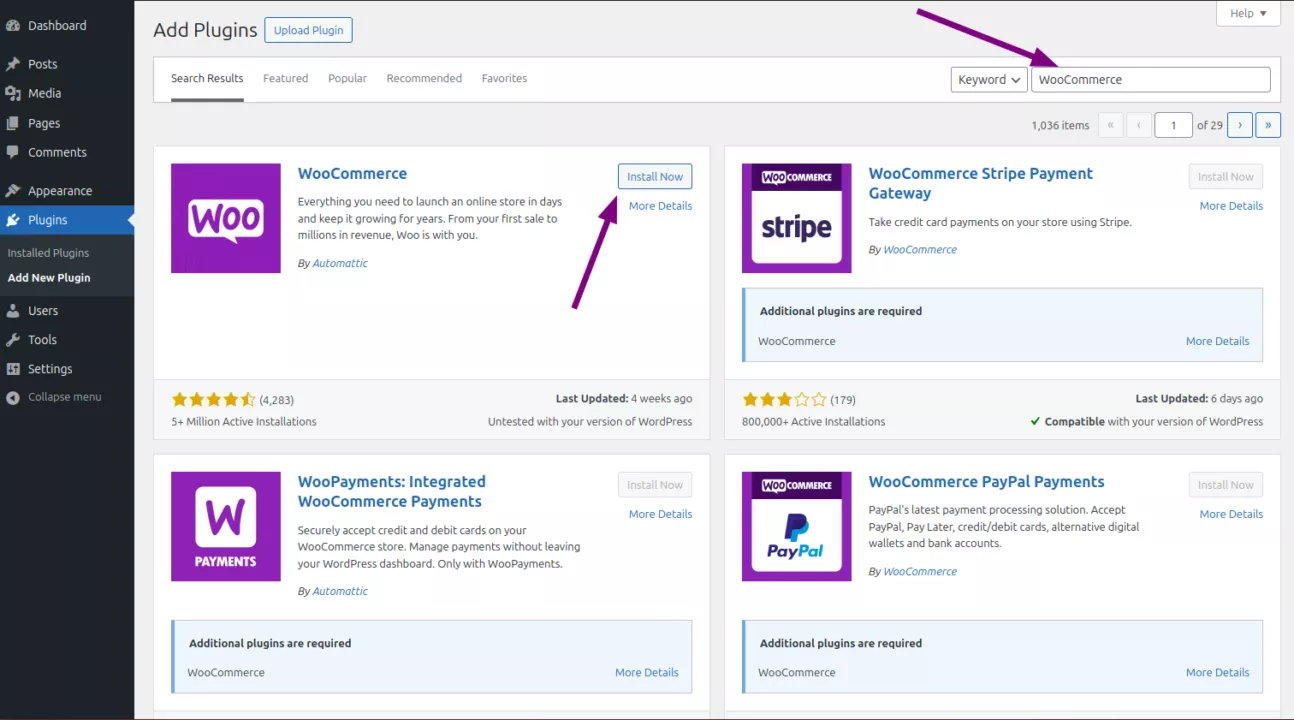
- Follow the WooCommerce setup wizard steps
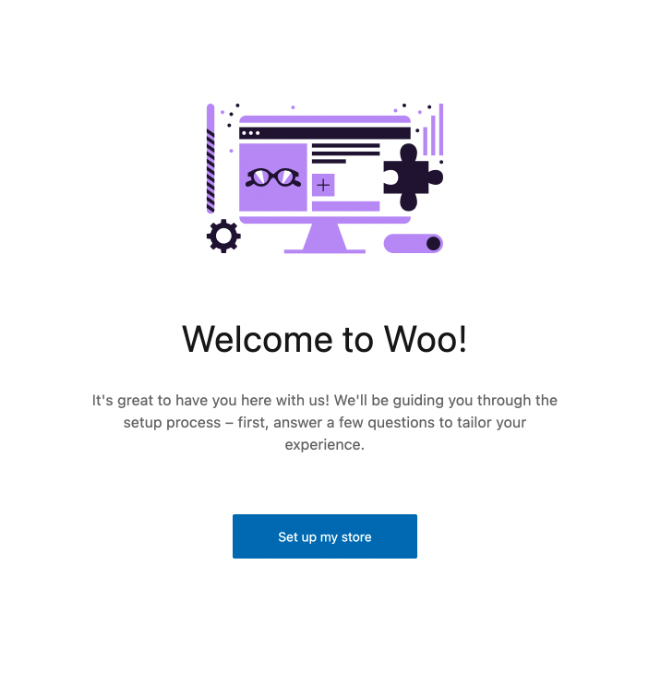
- Set up your products and services
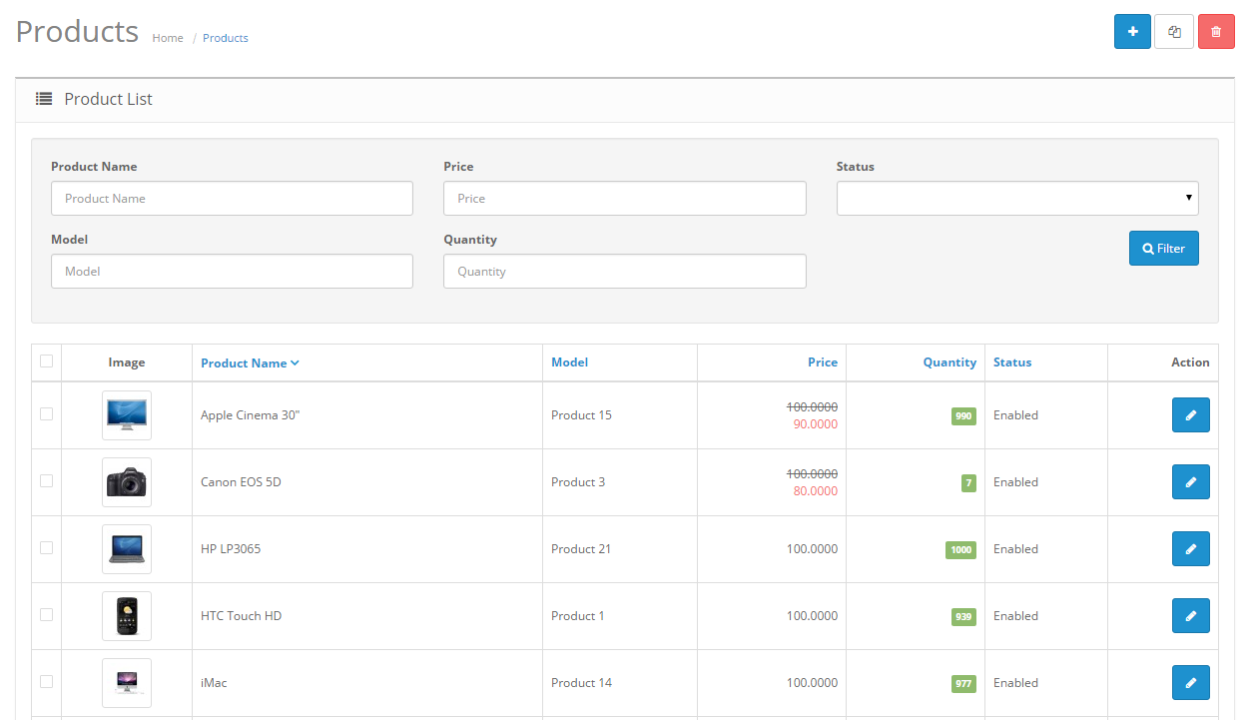
- Connect your payment processor of choice

- Add any WooCommerce plugins and integrations to make your site even better
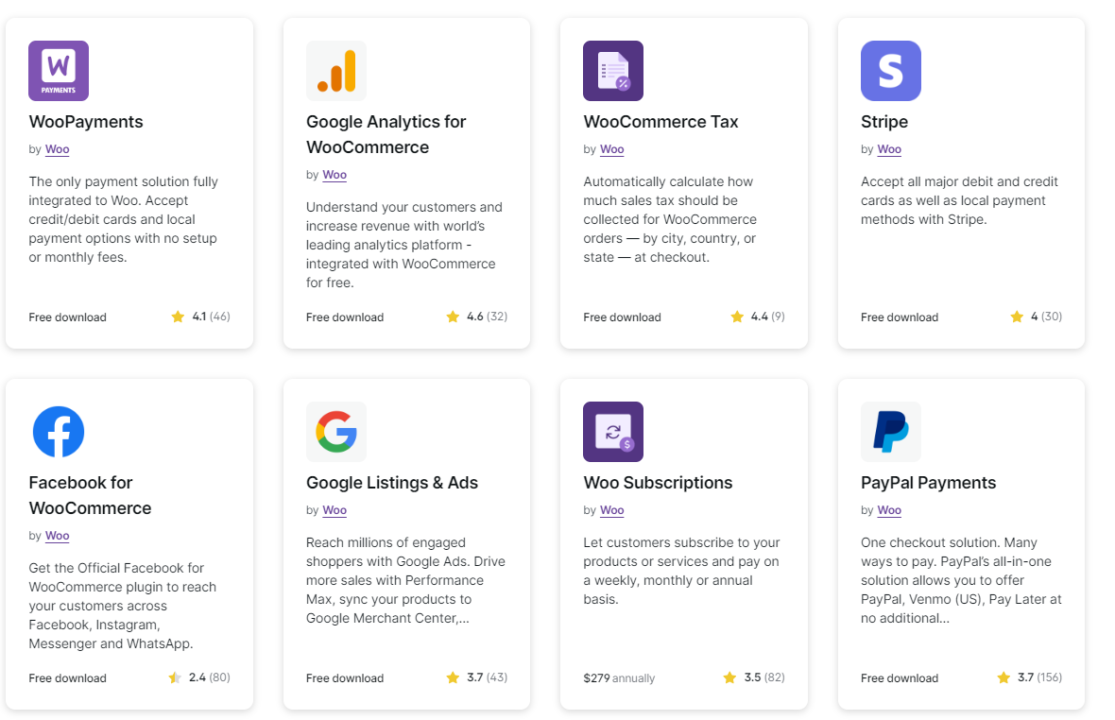
Quick sign up | No credit card required
Success stories of healthcare providers that use digital marketing
1. Dr. Aaron Horschig
Dr. Horschig is a physical therapist based in Manchester, Missouri. He also owns Squat University LLC, which specializes in information for athletes. He has over four million subscribers on YouTube and three million followers on Instagram.
His influencer success has led him to offer various new products, but he remains a practicing physical therapist. His content serves as a solid blueprint for healthcare providers interested in leveraging influencers and social media.

2. Advanced Reconstructive Surgery Alliance (ARSA)
ARSA is a managed services organization partnered with Cardinal Digital Marketing to increase its new patient acquisition by 294%. It achieved this feat by focusing on pay-per-click advertising and optimizing landing pages for conversions. The PPC channel was refined through efficient keyword research to ensure the right patients were finding the services ARSA provided at one of its clinics. This also led to a 73% decrease in cost per acquisition.
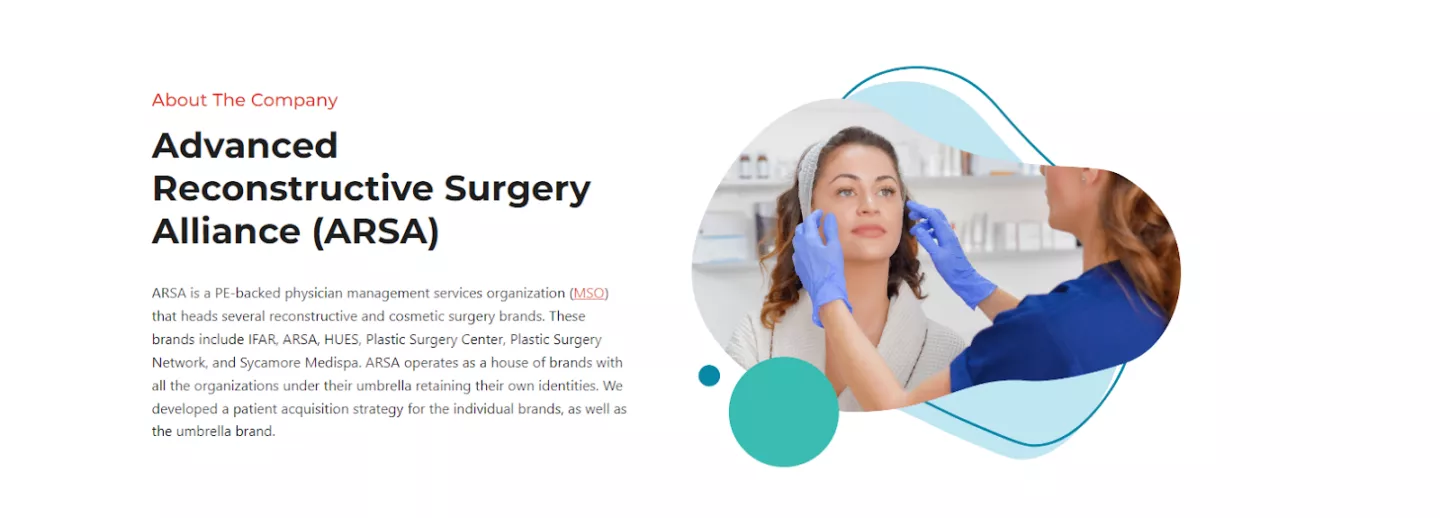
3. Mayo Clinic
Mayo Clinic is a major force in healthcare organic search results. It drives an estimated 400m+ visitors a month from the channel. It has achieved these results by focusing on producing informative content on diagnoses, treatments, and medicine. Its content is a prime example from which any healthcare-based business can get inspiration.
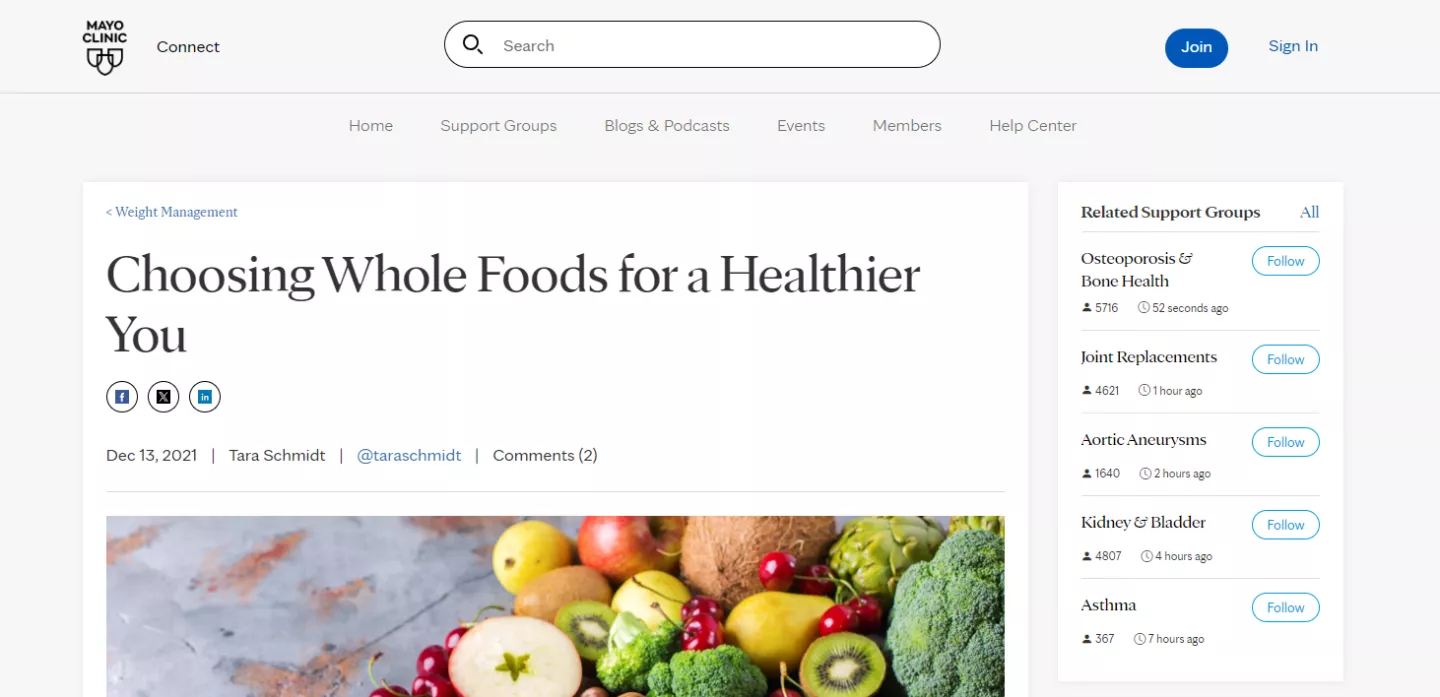
These success stories demonstrate how all the above strategies, like influencer marketing, SEO, and PPC, can be used to grow your healthcare business.
TABLE OF CONTENTS
TABLE OF CONTENTS


No fluff, no spam, no corporate filler. Just a friendly letter, twice a month.

 OFFER
OFFER







